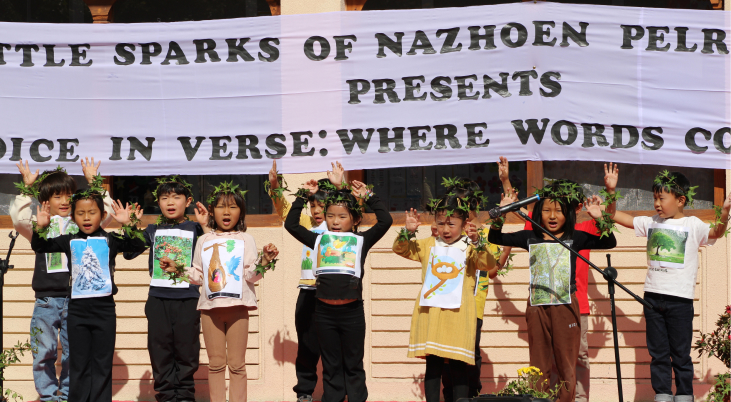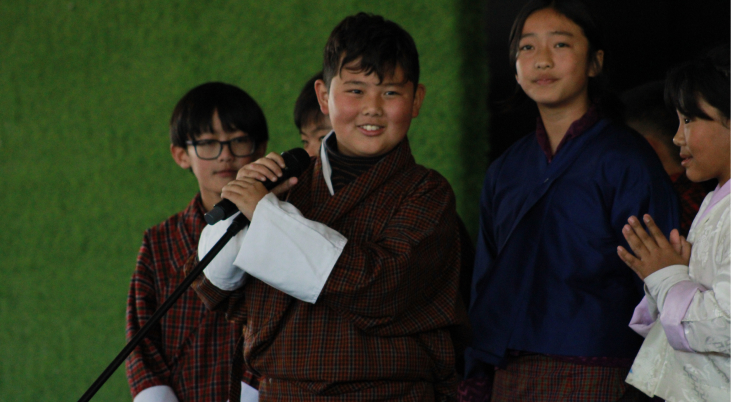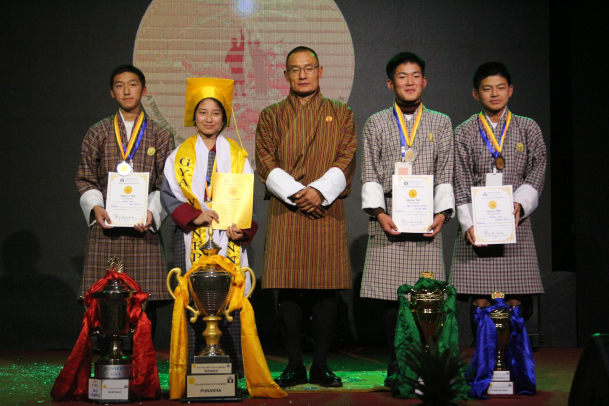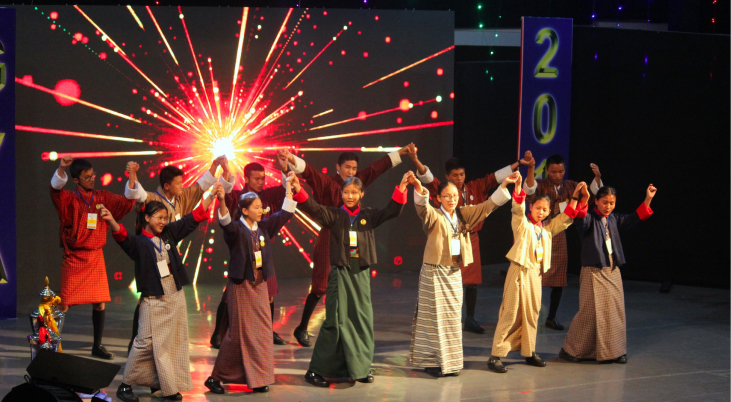

Bhutan’s education system strives to maintain a delicate balance between modern, Western-style learning and the country’s rich monastic traditions. Despite significant progress, gaps remain in bridging theory with practical, community-based experiences, as well as in ensuring equal access to education—whether secular or monastic. Students from economically disadvantaged backgrounds, as well as young monks living in monasteries, often lack the financial support and resources they need to thrive. As Bhutan modernizes, preserving cultural and spiritual heritage while also keeping pace with global educational standards becomes an ever-growing priority.
Traditional approaches can overlook “hands-on, real-world” experiences, causing students to disconnect from their communities and natural environment.
Despite making up nearly 10% of Bhutan’s population, monks often operate outside mainstream funding channels and may lack consistent support for proper nutrition, healthcare, and living conditions.
Many families cannot afford tuition fees, learning materials, or even basic needs—forcing talented young people, including monks, to forgo education.
Students need both academic proficiency and exposure to Bhutan’s cultural roots to become well-rounded, socially responsible citizens.
(Toepisa Gewog, Punakha Dzongkhag)
My Gakidh Village School harnesses the local ecology, economy, and culture as a living classroom. Students work on “hands-on, real world” challenges, from reusing non-biodegradable materials to building with wood and mud rather than steel and cement. This approach discourages excessive plastic use and fosters sustainable practices that students can replicate at home.
Encourages students to tackle community issues—like waste management—and propose practical, sustainable solutions.
Strengthens ties to Bhutan’s natural heritage and cultural roots, allowing students to see how traditional values connect with environmental stewardship.
Aims to incorporate components of YDF’s other initiatives—like Climate Action and Health & Wellbeing—to broaden students’ horizons and cultivate diverse skill sets.


Green Curriculum & Place-Based Education
NPS emphasizes “70% outdoor learning, 30% in learning centers,” enabling students to engage deeply with local environments and cultural practices. This experiential approach addresses a key gap: bridging formal education with real-life application.
Students explore ecology, economy, and cultural heritage through site visits and community projects, making learning more relevant and memorable.
Personalized, Meaningful Lessons: By focusing on local contexts, NPS nurtures problem-solving abilities and leadership skills, preparing students to tackle future community challenges.
Engaged learners who see direct links between classroom knowledge and everyday life typically perform better academically—and become active agents of positive change.
Launched in 2005, the Golden Youth Award is YDF’s flagship program to recognize and reward youth who excel across diverse fields—academics, sports, cultural activities, leadership, social contributions, and exceptional talents. Every year, 80 outstanding students from Bhutan’s 20 Dzongkhags come together in Thimphu for the Golden Youth Award Camp.
Scholarship Opportunities: The annual winner receives the prestigious title of “Golden Youth” along with a scholarship to study at a top international college.
Leadership & Exposure: Over 2,000 young people have participated so far, many of whom have gone on to secure scholarships and leadership roles in Bhutan and abroad.
Empowerment & Motivation: By showcasing well-rounded excellence, the program inspires other students nationwide to strive for personal development and community impact.


YDF’s scholarship program—founded under the patronage of Her Majesty the Queen Mother Tseyring Pem Wangchuck—offers both need-based and merit-based scholarships, ensuring that promising youth from underprivileged backgrounds can complete secondary and higher education.
Wide-Ranging Support: Covers grade 7 to degree-level studies, helping students who might otherwise drop out due to financial constraints.
Over 1,000 Beneficiaries: Since 2002, the program has nurtured students in both in-country and international institutions, often leading to better employment prospects.
Future Pathways: Beyond tuition, YDF links beneficiaries to skill development and job opportunities, equipping them to become changemakers in their communities.
YDF’s educational initiatives—spanning modern classrooms, place-based learning, scholarship programs, and traditional monastic education—reflect Bhutan’s deep commitment to holistic development. By combining academic rigor with cultural preservation and spiritual enrichment, YDF equips students to become responsible citizens who cherish their heritage and are ready to lead in a changing world. Through collaborative efforts and ongoing innovation, YDF envisions a future where no young person is left behind, and Bhutan’s unique educational tapestry continues to flourish.